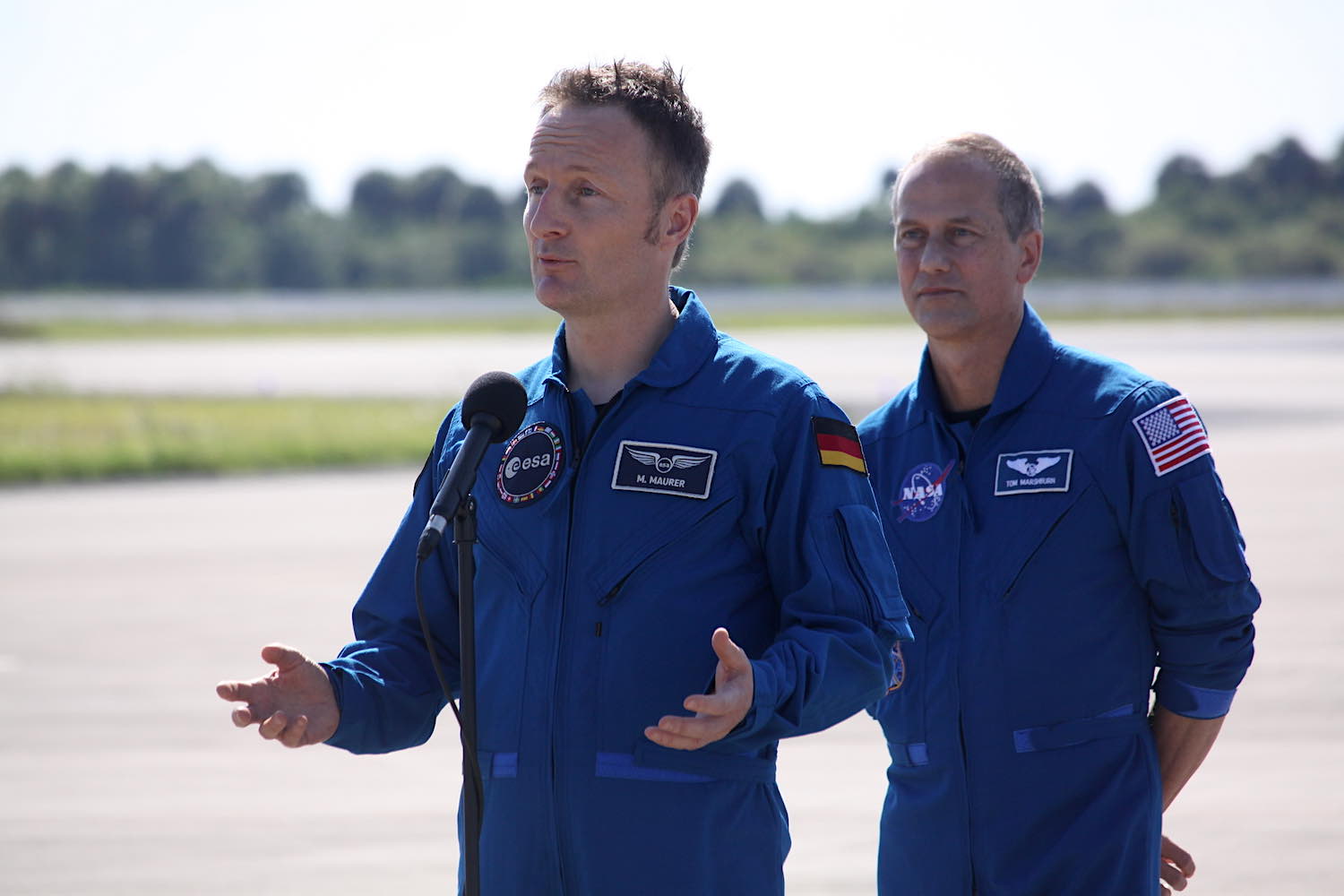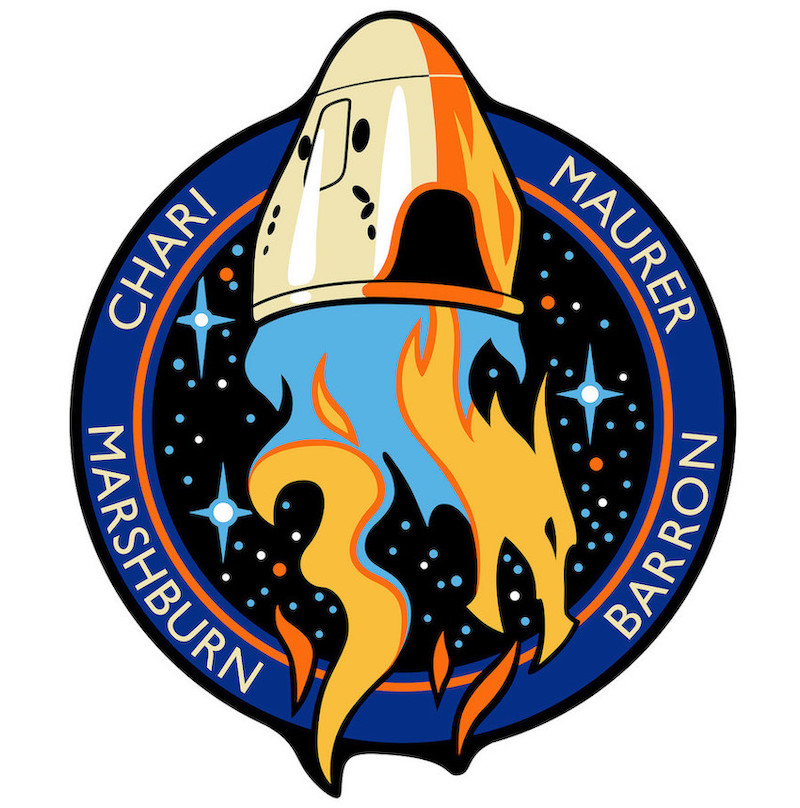
Astronauts Raja Chari, Tom Marshburn, Matthias Maurer, and Kayla Barron flew from their home base in Houston to NASA’s Kennedy Space Center Tuesday to begin their final few days of launch preparations before blasting off on a SpaceX Falcon 9 rocket for the International Space Station Sunday.
Three of the crew members — Chari, Maurer, and Barron — are first-time space fliers. Maurer, a German-born European Space Agency astronaut, will be the 600th person to fly into space, according to NASA statistics.
Chari will be the 599th, and Barron will be the 601st person to reach space since 1961, when Soviet cosmonaut Yuri Gagarin launched into orbit at the beginning of the Space Age.
“I was the lucky one that got the round number, but we will all have fun in space,” Maurer said Tuesday after arriving at Kennedy aboard a NASA Gulfstream jet.
“Being No. 600 in 60 years, it makes 10 persons per year,” Maurer said. “But I think in a very few years we will see an exponential rise of that because now we’re entering the era of commercial spaceflight, and all the suborbital flights, they also count in the statistics.”
NASA’s spaceflight statistics include every person who has reached an altitude of at least 50 miles (80 kilometers), the boundary of space also recognized by the Federal Aviation Administration and the U.S. military. The Kármán line at an altitude of 62 miles (100 kilometers) is where space begins according to the Fédération Aéronautique International.

The FAA has awarded commercial astronaut wings to pilots and crew of Virgin Galactic’s SpaceShipTwo rocket plane, which flies above the 50-mile boundary but does not reach the internationally-recognized 62-mile threshold.
Twenty people have joined the list of space fliers — under the U.S. government definition — since the beginning of this year. Seventeen of those are not professional astronauts or cosmonauts, with most of them flying as passengers on suborbital trips on Virgin Galactic or Blue Origin vehicles.
The arrival of the Crew-3 astronauts at Kennedy Space Center marks the start of a busy few days leading up t0 liftoff Sunday.
“We are super excited to be here at Kennedy,” said Chari, commander of the Crew-3 mission.
“We got to see the pad flying in, which was amazing,” he said. “The last few days have been full of reviews. We’ve had the benefit of getting to focus on training while our leadership teams have been making tough decisions and getting the vehicle ready … to make it safe for us to fly. And we’re ready to go.”
The only technical issue under review by NASA and SpaceX engineers involves the toilet on the Crew Dragon spacecraft. The waste system malfunctioned on the most recent Dragon crew mission last month, when SpaceX launched four private citizens into orbit on the first-of-its-kind all-commercial Inspiration4 mission.
A glued joint in a line that carries urine into the spacecraft’s waste tank became disconnected during the three-day flight. SpaceX welded the joint in the waste system on the Dragon spacecraft for the Crew-3 mission to avoid having the same problem.
NASA teams are reviewing the modification before formally giving the go-ahead for the Crew-3 launch this weekend. Agency officials are also studying the condition of the toilet system on the Crew Dragon spacecraft currently docked at the space station, which will be used by four astronauts to return to Earth next week.

Chari and his crewmates will spend this week reviewing flight plans, rehearsing for launch day, and taking some time off before their scheduled blastoff to the International Space Station at 2:21 a.m. EDT (0621 GMT) Sunday from pad 39A.
Assuming an on-time launch, the Crew Dragon Endurance spacecraft — the newest member of SpaceX’s crew capsule fleet — will dock at the station around 12:10 a.m. EDT (0410 GMT) Monday.
The Crew-3 astronauts will spend six months at the space station, performing experiments and maintaining the complex as part of a seven-person long duration crew. Three other crew members launched on a Russian Soyuz spacecraft.
The new crew will spend a few days getting briefings and updates from the outgoing Crew-2 astronauts, who arrived at the space station in April on SpaceX’s Crew Dragon Endeavour spacecraft. The Crew-2 mission will end Nov. 4 or 5 with an undocking from the station and a splashdown off the coast of Florida.
Email the author.
Follow Stephen Clark on Twitter: @StephenClark1.
